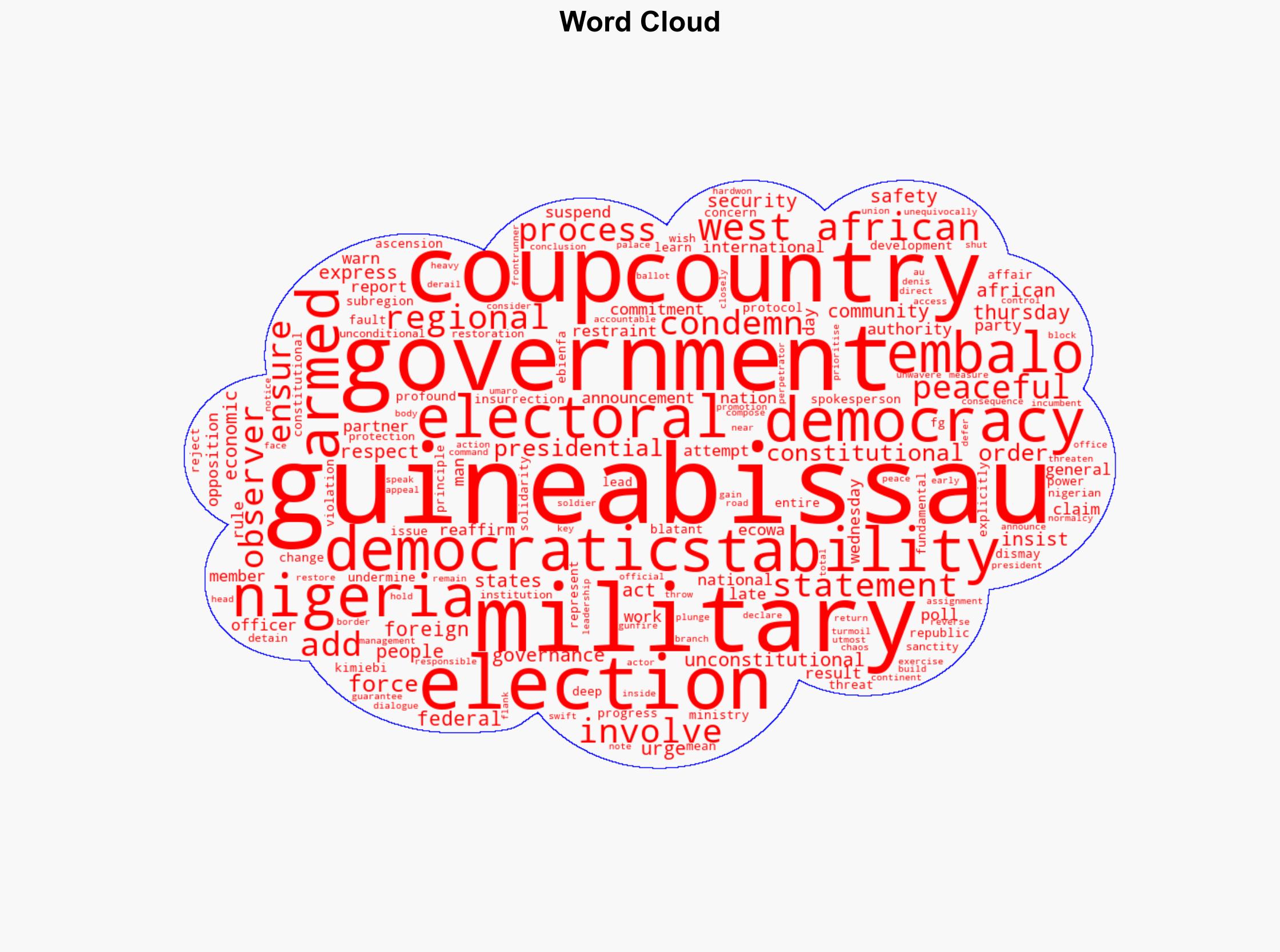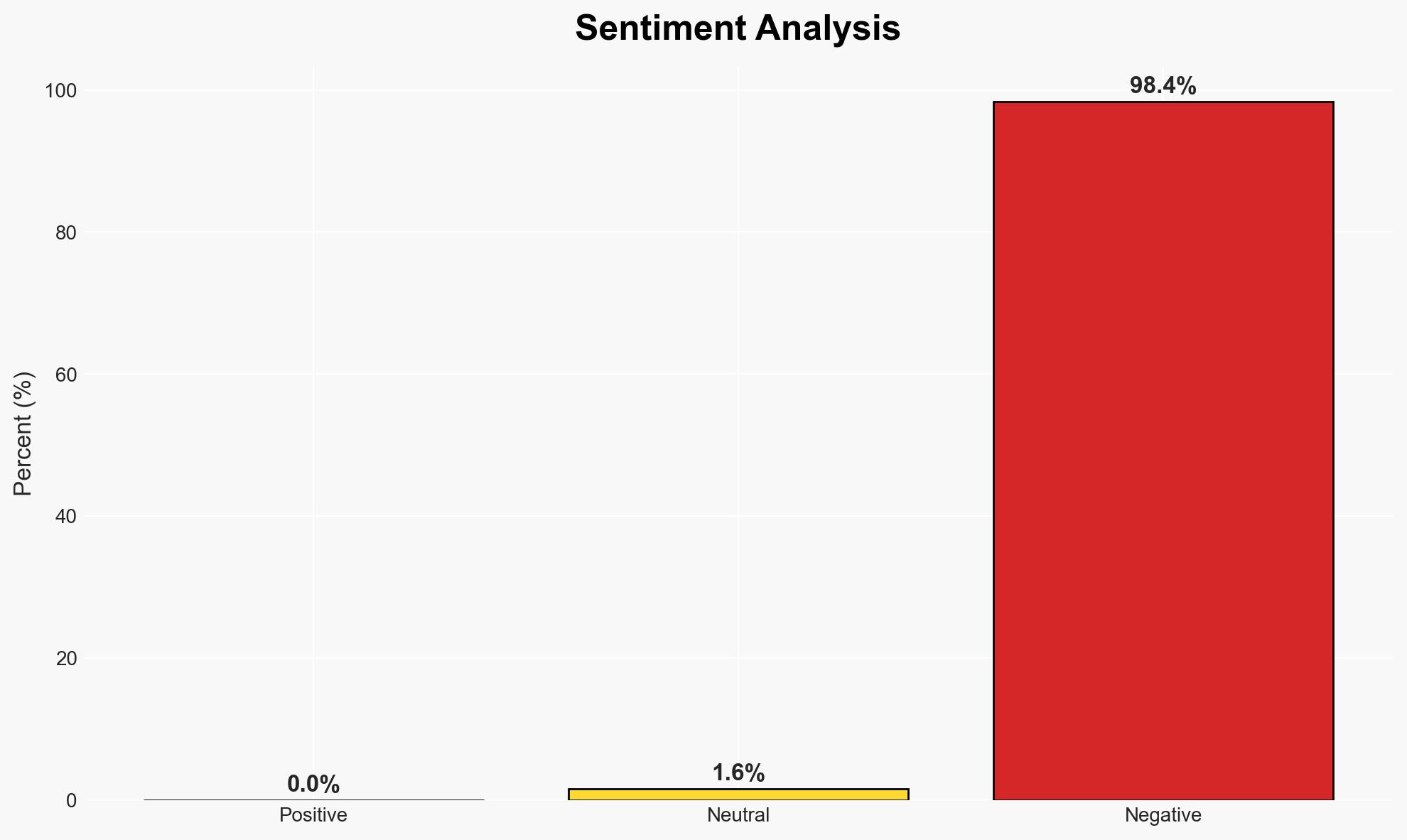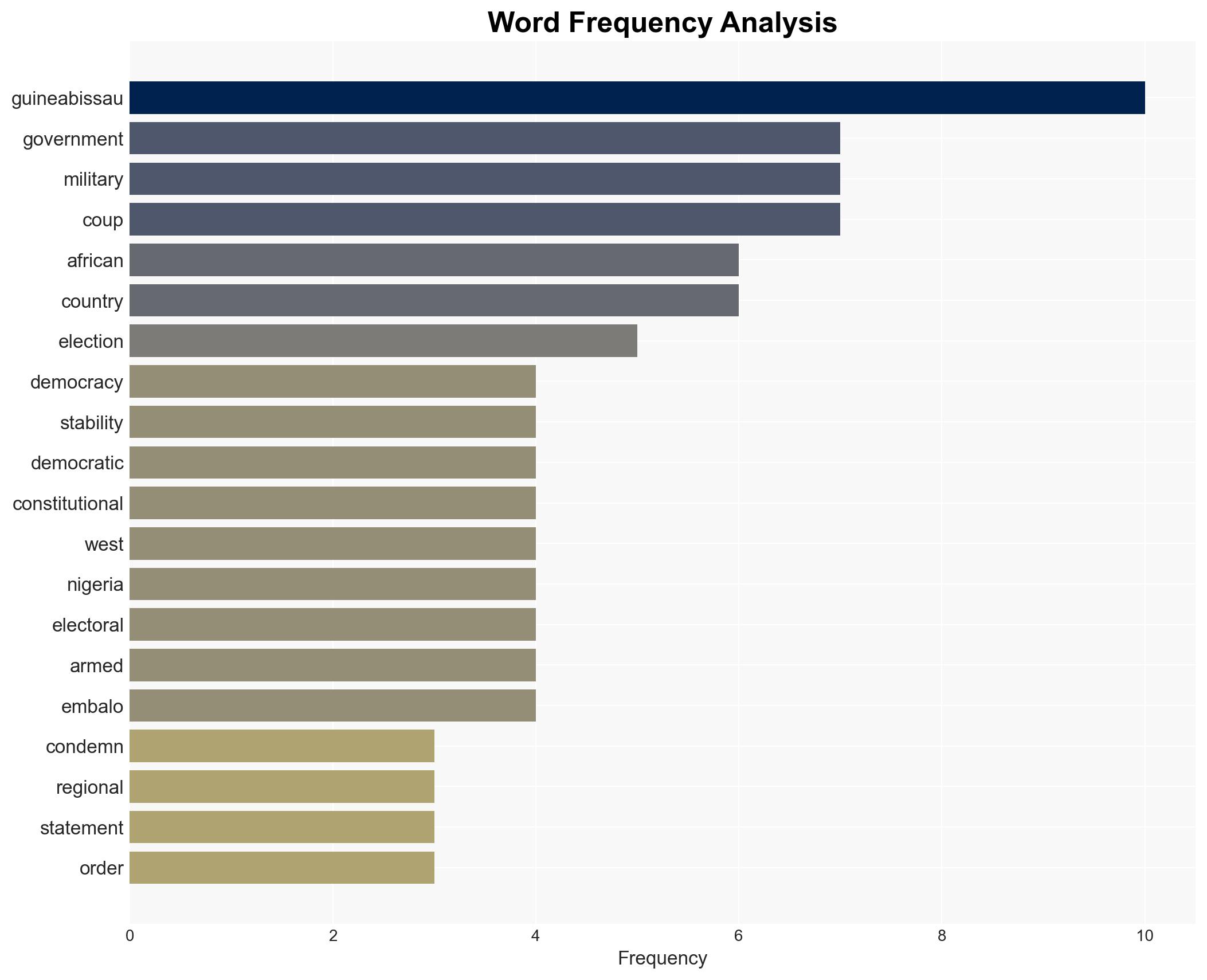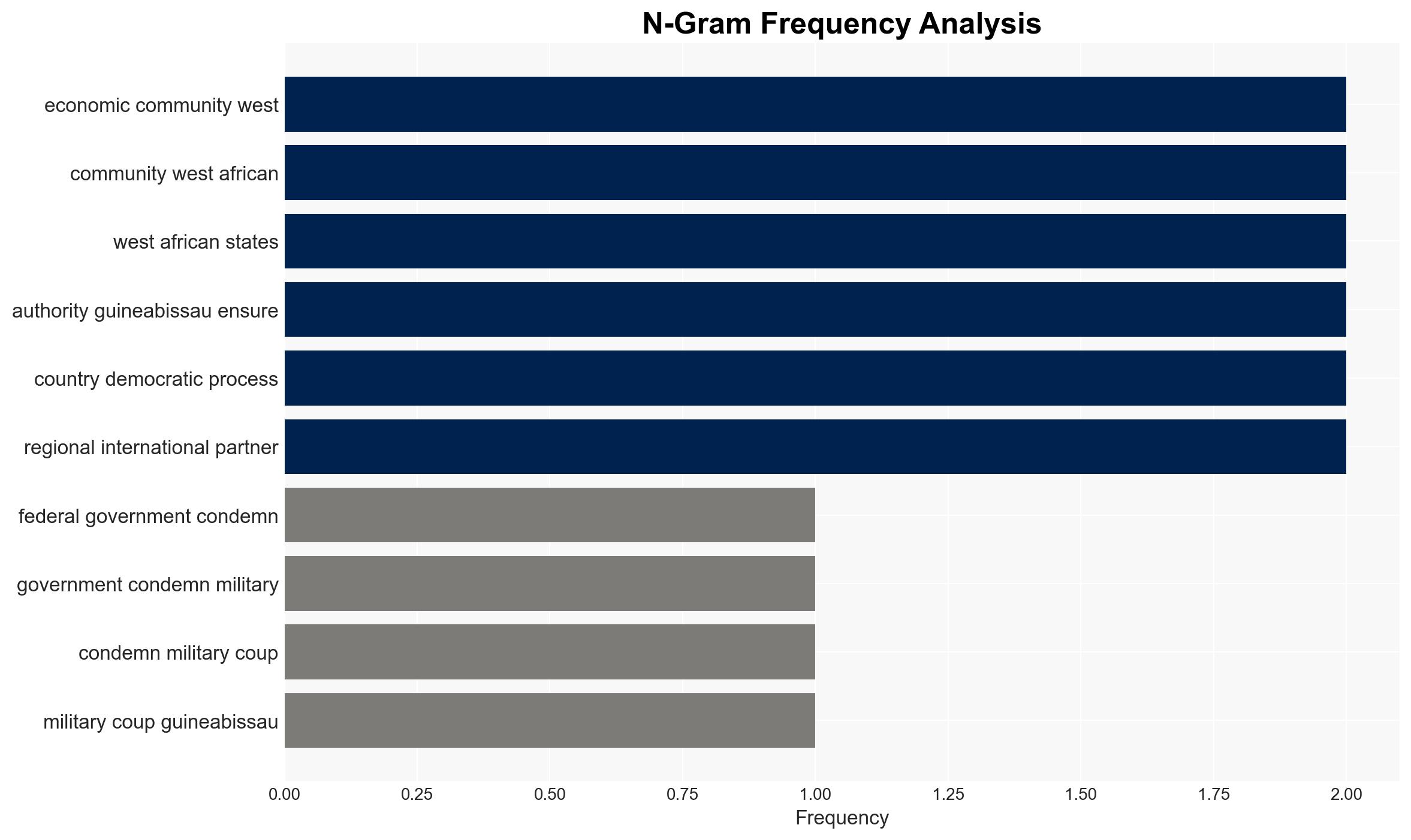Nigeria denounces Guinea-Bissau military coup, calls for restoration of constitutional order and regional sta…
Published on: 2025-11-27
AI-powered OSINT brief from verified open sources. Automated NLP signal extraction with human verification. See our Methodology and Why WorldWideWatchers.
Intelligence Report: Nigeria condemns military coup in Guinea-Bissau
1. BLUF (Bottom Line Up Front)
The Nigerian government has condemned the recent military coup in Guinea-Bissau, emphasizing the threat it poses to regional stability and democratic progress. This development is likely to impact political dynamics within the Economic Community of West African States (ECOWAS). The most likely hypothesis is that the coup will lead to increased regional diplomatic efforts to restore constitutional order. Overall confidence in this assessment is moderate, given the limited information on the internal dynamics of the coup.
2. Competing Hypotheses
- Hypothesis A: The coup in Guinea-Bissau is primarily driven by internal military factions seeking power, with limited external influence. Supporting evidence includes the military’s immediate control of key state functions and the suspension of the electoral process. Key uncertainties include the extent of external support or influence.
- Hypothesis B: The coup is part of a broader regional pattern of instability, possibly influenced by external actors or regional power dynamics. Contradicting evidence includes the lack of direct evidence of external involvement at this stage.
- Assessment: Hypothesis A is currently better supported due to the immediate and localized nature of the military actions. Indicators that could shift this judgment include evidence of foreign involvement or regional coordination among coup leaders.
3. Key Assumptions and Red Flags
- Assumptions: The military leadership in Guinea-Bissau seeks to consolidate power internally; ECOWAS will respond diplomatically; Nigeria’s condemnation reflects broader regional sentiment.
- Information Gaps: Detailed motivations of the coup leaders; potential foreign involvement; the response of Guinea-Bissau’s civilian population.
- Bias & Deception Risks: Potential bias in reporting from regional sources; risk of misinformation from coup leaders to legitimize their actions.
4. Implications and Strategic Risks
This coup could destabilize the region, affecting political alliances and security dynamics. It may also embolden similar actions in other West African nations.
- Political / Geopolitical: Risk of increased tensions within ECOWAS; potential for diplomatic isolation of Guinea-Bissau.
- Security / Counter-Terrorism: Possible increase in regional instability, affecting counter-terrorism efforts.
- Cyber / Information Space: Potential for misinformation campaigns to influence public perception and international response.
- Economic / Social: Economic sanctions could exacerbate social unrest and economic decline in Guinea-Bissau.
5. Recommendations and Outlook
- Immediate Actions (0–30 days): Monitor ECOWAS and AU diplomatic responses; assess the security situation for foreign nationals in Guinea-Bissau.
- Medium-Term Posture (1–12 months): Strengthen regional partnerships to support democratic governance; develop contingency plans for potential regional instability.
- Scenario Outlook:
- Best: Rapid restoration of constitutional order through diplomatic means.
- Worst: Prolonged military rule leading to regional instability.
- Most-Likely: Gradual return to civilian governance with ongoing regional diplomatic efforts.
6. Key Individuals and Entities
- Umaro Embaló (Incumbent President)
- Fernando Dias (Opposition Candidate)
- ECOWAS
- African Union (AU)
- Military leadership in Guinea-Bissau (Not clearly identifiable from open sources in this snippet)
7. Thematic Tags
National Security Threats, regional stability, military coup, ECOWAS, democracy, Guinea-Bissau, Nigeria, political unrest
Structured Analytic Techniques Applied
- Cognitive Bias Stress Test: Expose and correct potential biases in assessments through red-teaming and structured challenge.
- Bayesian Scenario Modeling: Use probabilistic forecasting for conflict trajectories or escalation likelihood.
- Network Influence Mapping: Map relationships between state and non-state actors for impact estimation.
Explore more:
National Security Threats Briefs ·
Daily Summary ·
Support us





